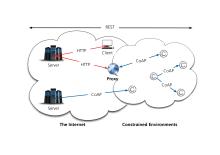- Support portal
- Evaluation Kits and partner products
u-blox Support
- Product documentation
Documentation
- Investor relations
Investor relations
Insights
|
10 Nov 2021
The benefits of BYO-SIM in a world of permanent roaming restrictions
Network agnostic IoT services are the key to continued operation where permanent roaming is not allowed.

For integrators of IoT projects, there's nothing worse than a project stalling - or even coming to a complete stop because of factors beyond your control. Due to permanent roaming restrictions in some regions, this is a real concern and can leave devices stranded in the field without the ability to communicate at all.
That's one of the reasons we have launched MQTT Flex, a network agnostic IoT communication service that allows you to bring your own SIM and enjoy the benefits of MQTT-SN communication in territories where permanent roaming isn't possible.
In this article, we look into the problems facing fixed devices using roaming SIM cards in foreign territories and provide a solution that makes IoT integration easy wherever your devices need to be.
Check out our white paper to find out how u-blox MQTT-based services can help you solve the complexity of communicating between IoT devices and the enterprise
What is permanent roaming?
Roaming is a concept that has served mobile phones well for many years. Many mobile contracts allow users to take their phones from one country to another without an interruption in service. The same is true of IoT devices on LPWANs (low power wide area networks). With a roaming IoT SIM card, devices can move between most countries seamlessly without losing any data on the way. This is made possible by reciprocal agreements between carriers that allow SIMs from other networks to roam onto theirs. Devices and SIMs that exist permanently outside their home network are said to be permanent roaming.
The advantages of roaming SIMs are fairly clear-cut. Your IoT device can go almost anywhere without having to worry about multiple contracts for multiple regions. For devices that need to move around, it's a near-perfect solution. For example, the u-blox MQTT Anywhere IoT SIM operates seamlessly across over 600 networks in over 190 territories worldwide.
While this solution is a perfect fit for many IoT applications, it's very easy to run into problems when using fixed location devices with a roaming SIM. Most networks are quite happy to allow devices to roam on their networks for a time, but many aren't quite so happy if they plan to stay there permanently - that can be due to regulatory restrictions passed down from governments or even due to networks' own competitive measures.
Roaming devices that stay in countries with roaming restrictions will simply stop working. This means someone will have to go to the physical device and put in a new SIM as well as re-provisioning the device for that new SIM. A very costly and time-consuming process.
Countries with strict permanent roaming restrictions:
- Australia
- Brazil
- Canada
- China
- India
- Turkey
Note: this is an ever-changing landscape and restrictions and limitations vary from country to country and network to network.
The NB-IoT roaming problem
Permanent roaming is even more problematic if your choice of LPWAN is NB-IoT. Several carriers now offer roaming NB-IoT services. But because billing between operators remains a sticky issue, international roaming agreements can be very patchy in terms of global coverage.
The network agnostic solution to permanent roaming
Many IoT connectivity packages these days come with everything you need to get connected, including a roaming SIM card, message brokerage, and platform integration. Like our own MQTT Anywhere service, these packages are ideal for roaming and moving devices but almost all will run into problems if they encounter a network with permanent roaming restrictions. That's where our BYO-SIM plan, MQTT Flex comes in.
BYO-SIM plans like MQTT Flex allow you to use a SIM from a local connectivity provider to easily connect devices to the enterprise despite using different connectivity to get there. With MQTT Flex you get full cloud integration with MQTT-SN messaging that can be used with any 2G, 3G, 4G LTE or NB-IoT network. MQTT Flex is a truly network agnostic service that gives you the freedom to choose.
Sticking with your current operator
Permanent roaming isn't the only reason to go BYO-SIM. You may be happy with your network operator but want to take advantage of MQTT-SN communication and the easy platform integration provided by the Thingstream IoT service delivery platform.
The IoT deployment you're bidding to win might require the use of a particular network provider. MQTT Flex also allows the ability to comply with IoT project requirements where government or local municipalities may do just that. This is often the case with large utilities metering roll-outs, for example.
MQTT Flex makes it easy to bring your own SIM card and connect your devices to cloud platforms such as AWS IoT, Microsoft Azure, and others regardless of your choice of network operator.
BYO-SIM for NB-IoT
MQTT Flex brings MQTT-SN to NB-IoT networks. This is sometimes a necessity for certain use cases such as metering where deep in-building or underground penetration is required, a capability no other radio technology can provide.
BYO-SIM and let MQTT Flex handle the rest
IoT communication is so much more than just connectivity. Communication via MQTT Flex is built on the industry standard MQTT protocol. This enables long-life, low-power IoT devices such as asset tracking, sensor networks, and industrial and consumer monitoring applications.
MQTT Flex is built on top of our scalable, high-performance MQTT broker and powerful Data Flow Manager which allows simple processing, transformation, and integration of IoT messages into the enterprise. Devices can be activated, canceled, or suspended at any time within the Thingstream platform, making it easy to scale with your business needs.
Combined with fixed, low-cost price plans based on the number of MQTT-SN messages consumed rather than the amount of data, the cost of scalability is totally predictable. This means no nasty surprises if you do need to scale up or down.



